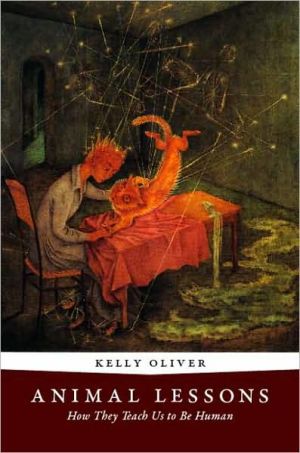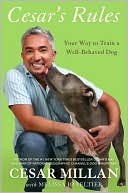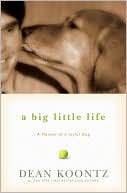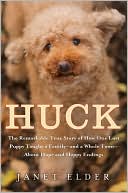Animal Lessons: How They Teach Us to Be Human
Philosophy reads humanity against animality, arguing that "man" is man because he is separate from beast. Deftly challenging this position, Kelly Oliver proves that, in fact, it is the animal that teaches us to be human. Through their sex, their habits, and our perception of their purpose, animals show us how not to be them.\ This kinship plays out in a number of ways. We sacrifice animals to establish human kinship, but without the animal, the bonds of "brotherhood" fall apart. Either...
Search in google:
Philosophy reads humanity against animality, arguing that "man" is man because he is separate from beast. Deftly challenging this position, Kelly Oliver proves that, in fact, it is the animal that teaches us to be human. Through their sex, their habits, and our perception of their purpose, animals show us how not to be them. This kinship plays out in a number of ways. We sacrifice animals to establish human kinship, but without the animal, the bonds of "brotherhood" fall apart. Either kinship with animals is possible or kinship with humans is impossible. Philosophy holds that humans and animals are distinct, but in defending this position, the discipline depends on a discourse that relies on the animal for its very definition of the human. Through these and other examples, Oliver does more than just establish an animal ethics. She transforms ethics by showing how its very origin is dependent upon the animal. Examining for the first time the treatment of the animal in the work of Heidegger, Merleau-Ponty, Derrida, Agamben, Freud, Lacan, and Kristeva, among others, Animal Lessons argues that the animal bites back, thereby reopening the question of the animal for philosophy.
Acknowledgments ixIntroduction: Biting the Hand That Feeds You: The role of Animals in Philosophies of Man 1Part 1 What's wrong with Animal Rights?1 The Right to remain Silent 25Part 2 Animal Pedagogy2 You Are What You Eat: Rousseau's Cat 513 Say the Human Responded: Herder's Sheep 79Part 3 Difference "Worthy of Its Name"4 "Hair of the Dog": Derrida's and Rousseau's Good Taste 975 Sexual Difference, Animal Difference: Derrida's Sexy Silkworm 131Part 4 It's Our Fault6 The Beaver's Struggle with Species-Being: De Beauvoir and the Praying Mantis 1557 Answering the Call of Nature: Lacan Walking the Dog 175Part 5 Estranged Kinship8 The Abyss Between Humans and Animals: Heidegger Puts the Bee in Being 1939 "Strange Kinship": Merleau-Ponty's Sensuous Strickleback 20810 Stopping the Anthropological Machine: Agamben's Ticktocking Tick 22911 Psychoanalysis as Animal By-product: Freud's Zoophilia 24712 Animal Abjects, Maternal Abjects: Kristeva's Strays 227Conclusion: Sustainable Ethics 303Notes 307Bibliography 339Index 355
\ Environmental Philosophy - Brett Buchanan\ A valuable resource within continental philosophy and animal studies.\ \ \ \ \ \ Quarterly Review of Biology - Anthony J. Dellureficio\ Oliver has made a convincing argument that the animal/human divide is much more complex than a simple dichotomy, and that our relationship with animals should be based on commonality, rather than what divides us.\ \ \ \ Journal of Animal EthicsThere is, indeed, a philosophical counter-tradition dawning in the contemporary posthuman zeitgeist, and Oliver's book clears the decks in preparation for a new enlightenment.\ \ \ \ \ \ Environmental PhilosophyA valuable resource within continental philosophy and animal studies.\ — Brett Buchanan\ \ \ \ \ \ Quarterly Review of BiologyOliver has made a convincing argument that the animal/human divide is much more complex than a simple dichotomy, and that our relationship with animals should be based on commonality, rather than what divides us.\ — Anthony J. Dellureficio\ \ \ \ \ \ Journal of Animal EthicsThere is, indeed, a philosophical counter-tradition dawning in the contemporary posthuman zeitgeist, and Oliver's book clears the decks in preparation for a new enlightenment.\ — Randy Malamud\ \ \








